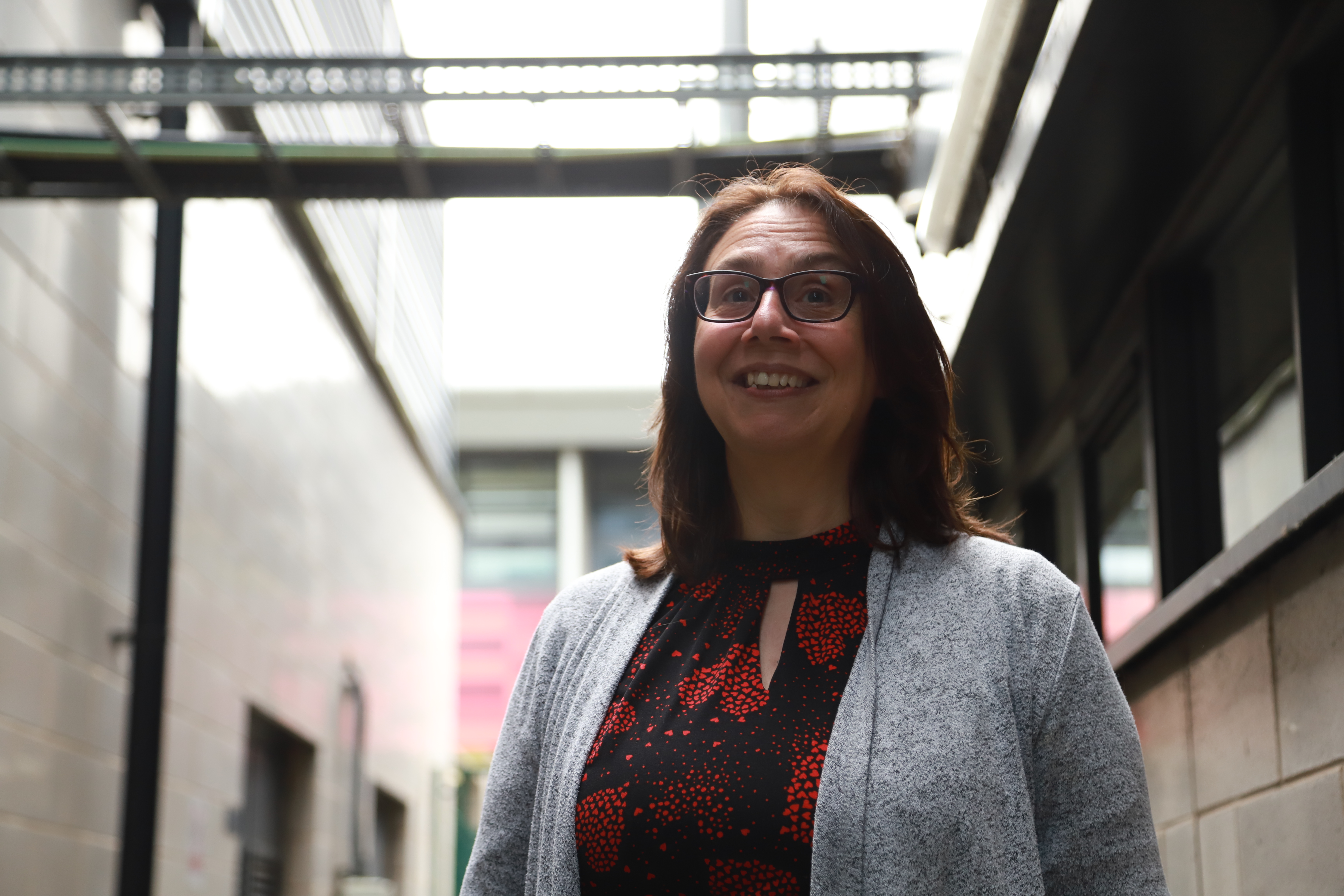Professor of Mechanical Engineering Carol Eastwick of the University of Nottingham has been appointed to the UK government's Jet Zero Taskforce, which is led by Secretary of State for Transport Heidi Alexander MP.
The taskforce brings together aviation and fuel sector leaders, policymakers and researchers to accelerate the UK's transition to greener aviation.
Professor Eastwick will represent the UK Aerospace Research Consortium at the Jet Zero Taskforce's annual plenary, which meets for the first time in London on 4 December 2024 and will set out the government's vision for decarbonisation of the sector and how this links to economic growth.
The UK was the first aviation sector in the world to set a net zero target by 2050. Aviation accounts for 20% of UK transport CO2 emissions, and it is projected to become the second largest emitting sector in the UK by 2050. A new UK target to reduce all emissions by 81% by 2035 was set at COP29 in Azerbaijan, which the government said would strengthen the UK's position as a place for investment, delivering jobs and growth.
At the inaugural Jet Zero plenary, Professor Eastwick and her colleagues will discuss priorities, set objectives of the Taskforce, and support the launch of its Expert Group, which will identify barriers to aviation decarbonisation. The plenary's membership includes Energy Security and Net Zero Secretary Ed Miliband MP and leaders from industry and the aviation sectors, including Rolls-Royce, British Airways and Airports UK. It will review progress and strategic objectives over the coming 12 months and beyond.

Professor Eastwick, who is Airbus Research Chair in Advanced Liquid Fuel Systems and heads the Faculty of Engineering's Mechanical and Aerospace Systems Research Group, said: "I am honoured to be invited to join the Jet Zero Taskforce by the Secretary of State for Transport. As someone whose whole career has been directed at practical reduction of emissions, decarbonisation and sustainability for energy and transport sectors I am excited to work with the taskforce in any way I can to support net zero.
"No single technological breakthrough, whether sustainable fuels, electric aircraft, green energy sources such as hydrogen, or advances in cleaner and more efficient propulsion and flight systems, will lead this aviation revolution. By bringing together experts and industry to puzzle over the detail, the Jet Zero Taskforce can help power advances in green aviation across many fronts."
Professor Eastwick's expertise lies in multiphase thermofluid systems and the transfer of thermal power from gas, liquids or vapours and how this can be applied to energy and transport. In aviation, understanding these processes is key to enabling net zero.
At the Mechanical and Aerospace Systems Research Group, Professor Eastwick and her colleagues are developing technologies to make jet engines and transmission systems more efficient, with transformative environmental impact. The group's work spans energy and transport systems, working at fundamental and applied research levels (TRL 1 – 5) to solve societal challenges to ensure we can sustainably provide affordable, clean energy and decarbonise transport for future generations.
Professor Eastwick is also a member of the university's Power Electronics and Machines Research Group, which has internationally-renowned expertise in transport electrification.
Climate change is one of the biggest challenges we face, and together with industry, I am determined to build an aviation sector that's future-ready and better for the planet.
She continued: "We need to make flying a cleaner, greener experience and the new and improved Jet Zero Taskforce will be the driving force behind this transition. I look forward to working with all members to deliver meaningful changes that will boost our economy and make the UK a global leader in sustainable travel."
Building on the previous Jet Zero Council, the Jet Zero Taskforce will support the production and delivery of sustainable aviation fuels and zero emission flights, as well as look at how to improve aviation systems to make them more efficient.
Professor Chris Tuck, Interim Pro-Vice-Chancellor of the Faculty of Engineering, said: "As a pioneering mechanical engineer and key figure within the UK Aerospace Research Consortium, Professor Eastwick will bring invaluable expertise to the Jet Zero Taskforce.
"The University of Nottingham has sector-leading strengths in clean aircraft technologies and propulsion systems, sustainable aviation fuels, advances in materials, manufacturing and aircraft maintenance and more efficient airspace and airport operations, and we're delighted that Carol will be able to draw upon this range of knowledge and play a significant role with the Jet Zero Taskforce."
Professor of Human Factors Sarah Sharples also joins the plenary in her capacity as Chief Scientific Adviser to the Department of Transport, which she joined on secondment from the university's Faculty of Engineering in 2021.






